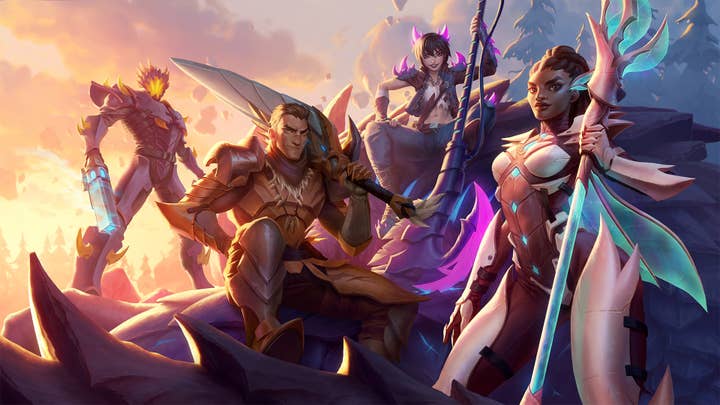How the Dauntless community taught Phoenix Labs about trust
Phoenix Labs' Nick Clifford explores the value of building lasting relationships within your community, and how to get there
One of Phoenix Labs' studio pillars is that "we bring players together through deep multiplayer games." It's the first thing on our website, and it is at the beginning of every internal studio presentation.
Even before we knew what our first game would be, we believed it would focus on shared experiences. We were inspired by all the great "watercooler" moments in games we played in the past -- toppling our first raid boss, advancing to the next ranked bracket, or constructing masterpieces out of blocks.
These shared moments and the communities that grow around them are a powerful force, and can make or break your game's success. We learned firsthand the value of trust and building lasting relationships with community members. In this article we will go through our journey building the 20 million strong Dauntless community, and explain why it matters for every developer and content creator.
Don't wait until after your game has launched to start thinking about community
1. Plan early for success
Don't wait until after your game has launched to start thinking about community. Hire a community manager now.
We announced our debut title, Dauntless, in 2016, and ran a lengthy, two-year PC beta before launching on console with crossplay in 2019. We knew heading into our announcement that we needed to:
- Get Dauntless into the hands of players early and often
- Seek out players on their platforms of choice.
This was important because, as a new studio, we didn't know what we didn't know. Dauntless was a kernel, an idea that we believed the world wanted. We embraced our blind spots and knew we'd need community and feedback to shape Dauntless into the AAA online game we envisioned.
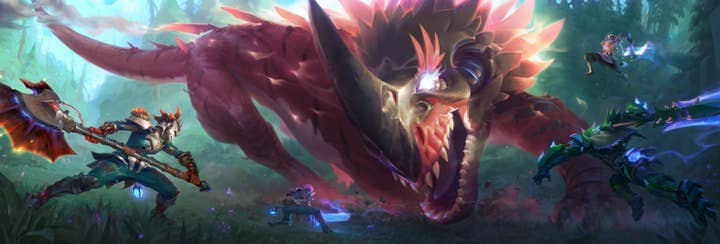
We consider Dauntless performance art. Much like a Broadway show, the performance is a two-way street. The cast has an idea in their head of how the show will unfold, but audience interaction, cheers, boos can change the experience.
Next, we sought out players on their own turf, instead of expecting them to come to us. As nice as it may sound, most players will never come to your website; they will discover new content through platforms they are already on. For this reason we sunset our forums and instead focus on third-party platforms.
As nice as it may sound, most players will never come to your website
Make sure you create social channels for your IP (and any potential options) as soon as the ink dries on your trademark. Even if you don't plan on using them day one, you don't want to have to negotiate, or worse, pay for them later. After we established our social presence, we began engaging with players immediately. Platforms like Facebook, Twitter, Reddit, and Discord are excellent for this. Often communities start small, providing you the opportunity to be very hands-on with each interaction.
But community engagement doesn't have to be only online. In three years, we've been to eight PAX shows, three E3s, two TwitchCons, and several local meetups. COVID-19 has some obvious health implications in 2020, but under normal circumstances, trade shows can be an excellent venue for real face-to-face conversations with players and fans.
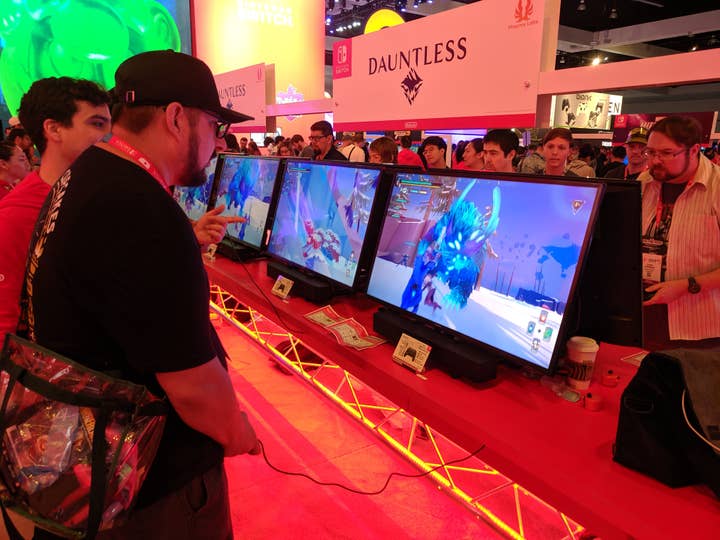
Decide what you want your community to look like by setting rules and guidelines early. For Phoenix Labs, this was an excellent opportunity for us to set the tone with our early adopters so that they could help reinforce it to new community members. We don't tolerate bullying, discrimination, or abuse or any kind, and we eject those that break the rules.
Dauntless is about coming together cooperatively and bonding with your fellow players. We set expectations that community content should be productive in addition to being social -- new player guides, buddy systems, and more. Together we fostered a welcoming vibe for new players.
2. Building lasting relationships
Getting players into the game is an important first step, but nurturing that relationship so that players come back month over month, year over year is just as critical.
Getting players into the game is an important first step, but nurturing that relationship is just as critical
We spend time every day conversing with players across every platform. This is especially important to us as a live game. We patch Dauntless every two weeks, with larger features releasing every quarter. In reality, we focus most of our marketing on retention -- meaning after a player has joined Dauntless -- as opposed to awareness or acquisition.
There is one core strategy that resonates through all of these marketing efforts: transparency. Transparency matters because it builds trust, and trust builds lifelong advocates for your product. We share our work early and often.
Think of it this way: if you only interact with players when you want something from them, your relationship is going to sour pretty quickly. Any marketing person will tell you that disenfranchised players are the hardest group to win back -- compared to new players or lapsed players, for example.
To help with visibility, we offer a public development roadmap that is updated no less than every two weeks (to match our sprint cycles). Early concept art and rough ideas fill the roadmap, and we take extra care to set expectations about features that may still change.
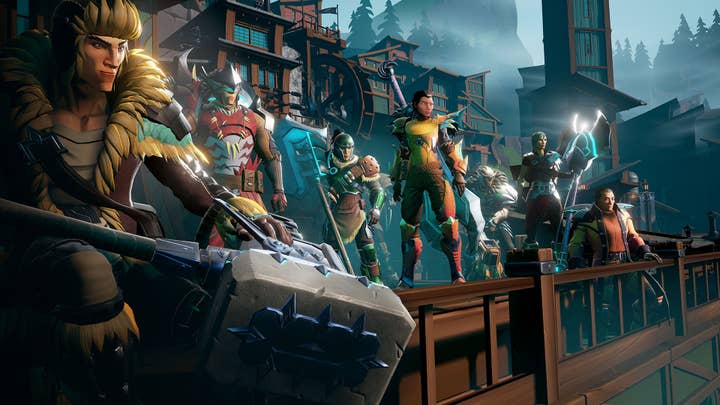
We also maintain a known issues list via Trello. Between these two tools, players will always be able to see what we're working on and when bugs will be fixed. Additionally, we cross-post these updates on social media and maintain a top issues list on our subreddit after every patch, maximizing visibility. Each player is unique and we strive to serve each with a level of detail to match what they are seeking. Wherever they are, however much detail they want, we have it ready and waiting.
In a live environment we have to make difficult decisions about Dauntless every day, some of them very publicly. When we pull back the curtain and share our decision-making process with players it helps everyone feel involved and included. We're all on the same page and no one feels like decisions are created in a vacuum. Simon Sinek covers this framework in his fantastic book Start with Why, and I highly recommend it to everyone.
Dauntless may be a live game, but these principles are applicable to any developer or product. Think of the boxed product model used by games like Mass Effect. Many of us at Phoenix Labs also had the opportunity to work on this wonderful franchise. BioWare envisioned Mass Effect as a series of games, one that spanned several years. If we expected players to return with each new iteration, we'd need to invest in community along the way. Much like a garden, a healthy community needs care and tending on a regular basis.
Much like a garden, a healthy community needs care and tending on a regular basis
3. Feedback is a gift
A wise person once told me that "feedback is a gift." This was right on the heels of me being defensive in a discussion. Sound familiar? It can happen to all of us. Giving and accepting feedback, especially critical, is challenging. I challenge you to change your relationship to feedback and treat it as an opportunity.
Each patch we release is an opportunity for us to improve Dauntless. To achieve that goal we need community feedback, and talking to the community shouldn't rest solely on the shoulders of your community manager.
At Phoenix Labs we offer social media and community engagement resources to everyone in our studio. The community manager acts as a facilitator. For example, our combat design team regularly talks with a cadre of community badasses who put our encounters to the test through development builds. This relationship helps us receive balance feedback from the people who know our game best before we put it live.
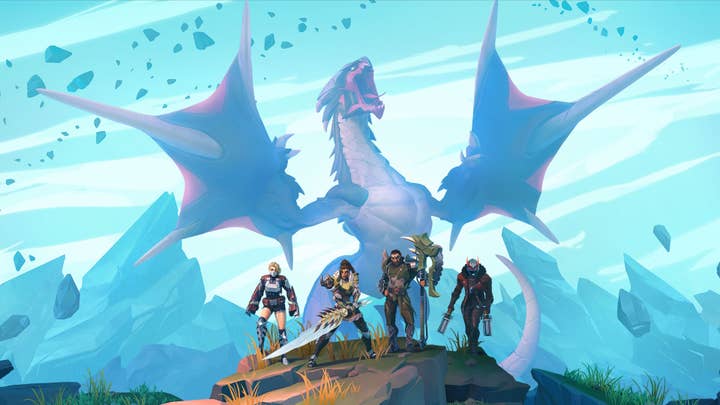
But our community feedback goes beyond just game balance. It has also helped us make systemic improvements to Dauntless, sometimes when we didn't even know we had a problem in the first place. Here are a couple examples:
- Loot boxes: In our earliest closed alpha builds, we supported loot boxes. We defaulted to this model given its near ubiquitous use in the industry at the time. Our community told us that spending money for a random chance at a reward felt bad, and that they'd rather just buy the item outright. This feedback inspired us to rewrite our entire monetization strategy and replace it with the Dauntless store that exists today -- ahead of the controversy that swept our industry.
- Ranged combat: Our initial vision for Dauntless featured "strategic melee action." We believed that ranged combat was too removed from the heat of battle. The community challenged us to think broader. We experimented with our first ranged attacks on the war pike weapon. When we saw that feedback was positive, we dove head first into a ranged-only weapon: the repeaters. Without community feedback we may not have explored this area of our game.
Remember that there is a real person on the other side of each comment
Keeping discussions productive and positive can be challenging, and all of us have been exposed to internet toxicity at some point. It will take grit. The best way to keep challenging conversations positive is by setting expectations. Illustrate, with examples, the type of feedback you are looking for. Call out what is "work in progress" and what is not yet ready for feedback.
You may be intimately familiar with all aspects of your game, but players may be seeing it for the first time. Remember that there is a real person on the other side of each comment, and put a face to your name as well. We try to assume the best intentions, and we coach others to assume the best as well.
Managing volume is critical. Make no mistake, when you ask for feedback you are signing yourself up for thousands of discussions, both internal and external. We manage this through a handful of dedicated Slack channels and an internal weekly recap report that covers important topics within the community.
Our recap is also a great opportunity for us to celebrate community creations such as fan art and cosplay. To help manage volume, you should also make sure you are employing some kind of tracking system for feedback, such as Jira or Trello. We add community bugs to our database every sprint.
This all may sound overwhelming at first, but as long as you remember that feedback is a gift, you'll wonder how you ever developed games without it.
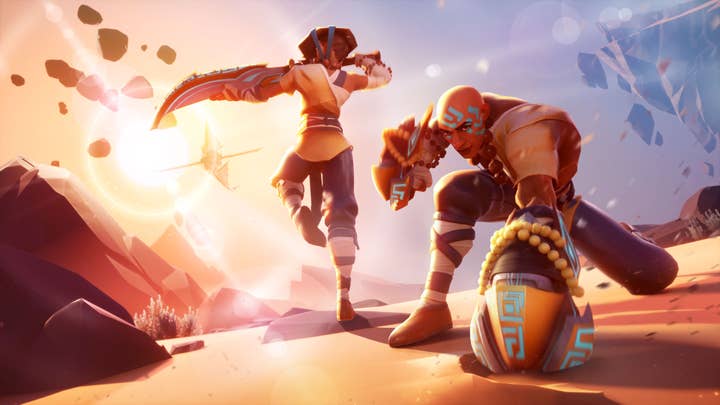
4. Arming your advocates
As we built rapport with our community, it became clear that the next step was providing the community with a way to self-manage and talk about the game on their own terms. This meant empowering leaders within the community with tools and access to the Phoenix Labs dev team. For their commitment, they are also recognized in-game with items and titles to showcase their efforts.
We took this a step further by creating Slack channels and Discord servers and inviting our community leaders to them, further integrating them with the team. They are supported by early access to builds, dev tools, and direct access to the team for Q&A. Dauntless and its vibrant community is what it is today thanks to the hard work and dedication of all these people.
As we moved towards sharing responsibility for the community, we recognized that our subreddit belonged to the community, not us. We handed over the keys to the community to run and moderate as they saw fit. Ultimately the Dauntless community isn't what we as Phoenix Labs say it is -- it's a collaboration between us and the millions of Slayers worldwide.
So, let's recap:
- Invest in community early, before your game releases.
- Seek players out on their platforms instead of expecting them to come to you.
- Dedicate time to interact with players on a regular basis, and return often.
- Be transparent and share your "whys" with players.
- Embrace feedback and set expectations.
- Arm your community leaders with the tools they need to guide the community on your behalf.
Nick Clifford started in games at EA where he worked on several titles including Mass Effect and Need for Speed. He then joined the Riot Games brand marketing team on League of Legends. Since 2015, Nick has led the Phoenix Labs marketing team in publishing the studio's debut title, Dauntless, which has grown to over 20 million players worldwide. You can reach out to him at nclifford@phxlabs.ca.
